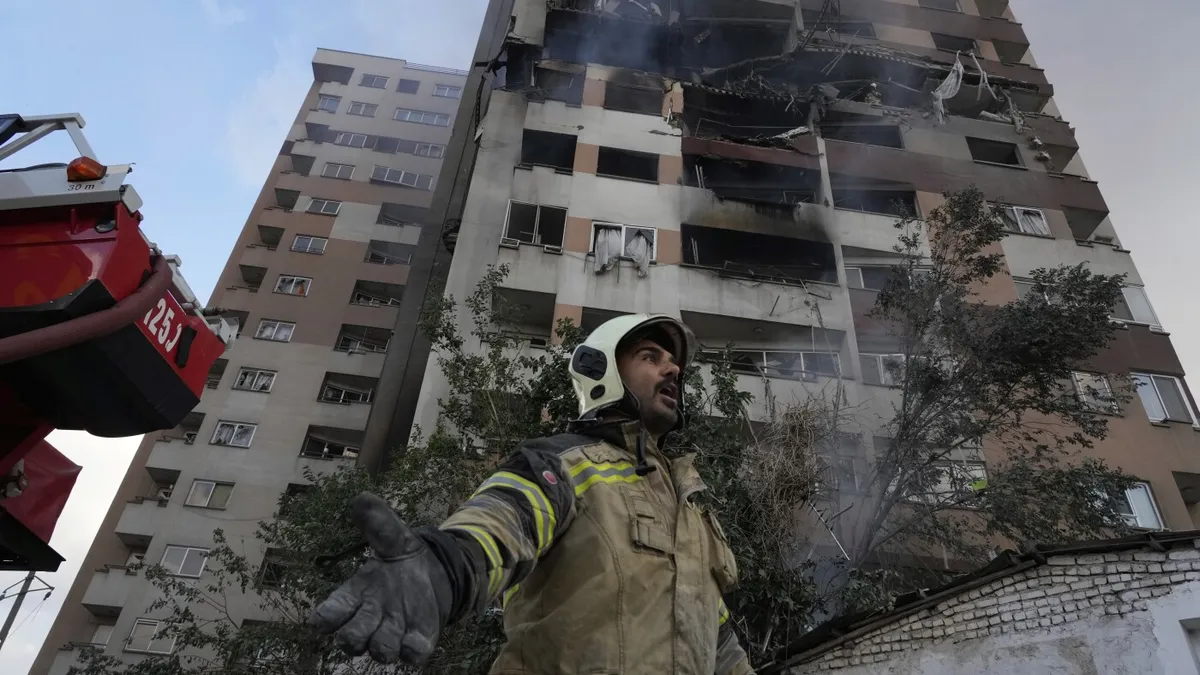
In a significant escalation of military tensions in the Middle East, Israel launched air strikes into Iran early Friday, primarily targeting the nation's nuclear program. This aggressive move has prompted Iranian retaliatory strikes, raising concerns of further military escalation in the region. The Israeli air strikes resulted in the deaths of key Iranian military leaders and nuclear scientists, coinciding with upcoming negotiations in Oman aimed at addressing international worries over Iran's uranium enrichment program.
Israeli Prime Minister Benjamin Netanyahu confirmed that the strikes specifically targeted Iran's principal nuclear enrichment facility located in Natanz. This facility has been a focal point of international scrutiny due to its role in Iran's uranium enrichment efforts. In response to the air strikes, Rafael Grossi, the chief of the International Atomic Energy Agency (IAEA), stated that his agency is in ongoing contact with Iranian officials to monitor radiation levels and assess the situation.
In the aftermath of the initial attacks, Israel reported that its air force conducted a large-scale operation against Iranian air defenses located in western Iran. The Israeli military claimed that these strikes effectively destroyed numerous radars and missile launchers, significantly degrading Iran's defensive capabilities. Following this, Israel also intercepted Iranian drones, while Jordan's air force successfully blocked attacks aimed at Israel within its own airspace.
As tensions flared, Jordan, Israel, Iran, and Iraq all closed their airspace to civilian traffic, leading to widespread flight cancellations and diversions across the region. Some of the busiest airports in the Arab Gulf were affected due to potential risks associated with missile threats. In Jordan, air raid sirens were activated, and announcements from mosques urged citizens to seek shelter as a precautionary measure. The Jordanian government reported that it intercepted several missiles and drones that flew over its territory on Friday morning.
The series of air strikes has led to a surge in oil prices, reflecting the heightened geopolitical risks in the region. Netanyahu, in his address to the nation, justified the military actions as a necessary measure for Israel’s survival, emphasizing the existential threat posed by Iran's advancing nuclear capabilities. The IAEA recently declared Iran in violation of international non-proliferation agreements intended to prevent the spread of nuclear weapons, further complicating the diplomatic landscape.
Despite the mounting international pressure, Iran maintains that its uranium enrichment program is intended for peaceful purposes, asserting its right to develop nuclear technology. The United States has reiterated its commitment to preventing an Iranian nuclear weapons program but clarified that it was not involved in the recent Israeli attacks on Iran.
As the situation develops, the international community is closely monitoring these events, which could have far-reaching implications for regional stability and global security.